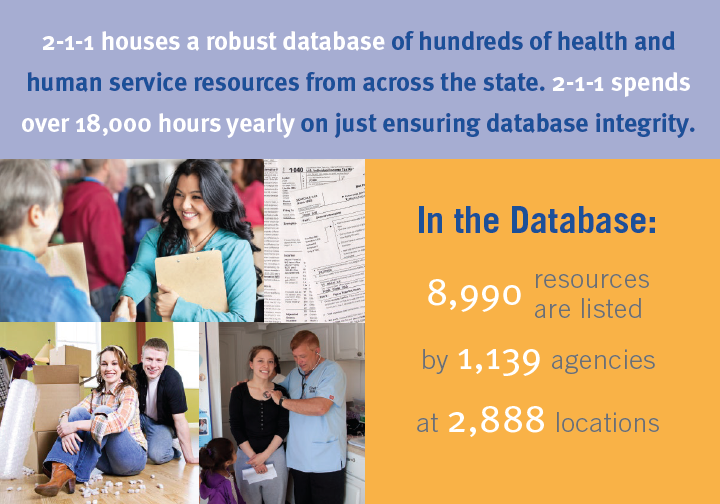
Digital Marketing Director
Over the past couple of years, United Way of Salt Lake and its partners have been working to strengthen the statewide 2-1-1 system in order to reduce duplication and save money. As a result, Utahns are more satisfied. This past year, 64 percent of callers said they were connected to services far beyond their original question
and need, and 98 percent said they would call again and refer someone to the service. Results like this are not possible without strong partnerships with nonprofit, community, and state organizations, and agencies.
2-1-1 is a critical lifeline for so many in our community. We thank you for your
support of and partnership in of this vital service.
We invite you to email your legislators today and let them know of your support for 2-1-1!
Check out Adam and Lucinda’s stories to see how 2-1-1 is working to help folks in our community get back on track!
“I’m scared for my kids.” Adam called on his way home from walking his young daughters to school. His voice shook as he told the 2-1-1 information specialist he was having surgery the next day and would be off work for several months. He was worried about how he could provide for his young children since he would be without income for so long. He was also concerned about caring for them in an incapacitated state. The specialist calmly offered a much-needed listening ear and gave him a list of places he could call to help meet the needs of his family while brainstorming child care solutions. The conversation left him feeling hopeful and empowered to take action on his own behalf.
“If I could just get gas, everything would be fine.” Lucinda, a 60 year old caller, had suddenly found herself unemployed and unable to get a job in nursing, her area of expertise. She was sure that if she could just get gas money to get to some interviews, everything would be fine. The 2-1-1 information specialist asked more questions
about her situation and discovered she had used all of her savings, was on the verge of losing her home, and had not eaten a real meal for weeks. She was immediately connected to a food pantry not far from her and sent to a location that could help support her housing situation. In addition, she was referred to a program that helps seniors gain new skills to be more effective in the workplace.

